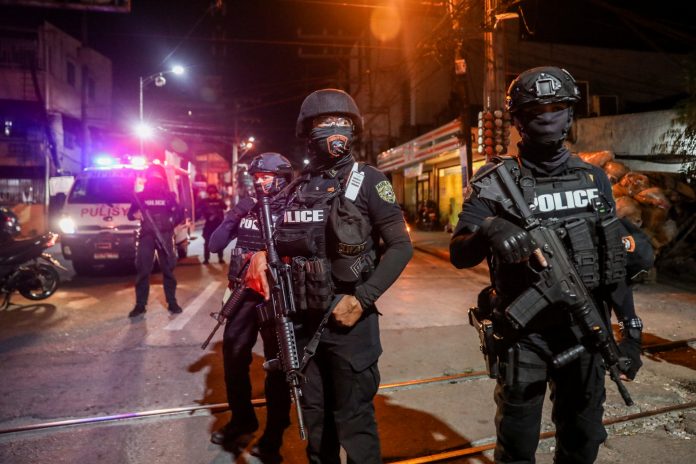What do hundreds of former prime ministers, presidents, Nobel laureates and lawmakers have in common?
They all abhor the rise of authoritarian behavior in certain countries, such as the Philippines, amid the coronavirus pandemic.
A recent Reuters report quoted the open letter organized by the Stockholm-based Institute for Democracy and Electoral Assistance (IDEA).
“Authoritarian regimes, not surprisingly, are using the crisis to silence critics and tighten their political grip,” wrote some 500 signatories, including more than 60 former leaders.
“Even some democratically elected governments are fighting the pandemic by amassing emergency powers that restrict human rights and enhance state surveillance without regard to legal constraints (or) parliamentary oversight,” they said.
Among the countries that IDEA mentioned as having introduced authoritarian measures or having fallen short on accountability were the Philippines, Hungary, El Salvador and Turkey.
The think-tank cited a study by the U.S.-based International Center for Non-Profit Law that said more than 80 countries have enacted emergency measures, including curfews, fines for those who breach the rules, extra surveillance, censorship and increased executive powers.
The overall impact of these measures, according to IDEA, has been the dilution of democratic norms, with dire implications for political freedom as well as the capability of governments to handle the crisis and future health emergencies.
The outbreak has already led to the postponement or cancellation of 66 elections worldwide, a third of them national polls, according to IDEA, while nearly 50 countries have imposed some form of restriction on press freedom, 21 of them democracies.
“There are legitimate reasons to invoke emergency powers. However, it is always problematic when a government uses emergency powers to clamp down on independent media and other fundamental rights,” said Kevin Casas-Zamora, also a former vice-president and government minister in Costa Rica.
“We want to draw attention to the plight of democracy in the midst of this crisis. It’s not protecting democracy for its own sake; it’s that democracy has an inherent value in dealing with this pandemic and preparing for the next one,” he added.
For the signatories, including Fernando Henrique Cardoso, former president of Brazil, and Jeb Bush, former governor of Florida, a primordial concern is that citizens begin to tolerate more authoritarian behavior.
“Democracy is under threat, and people who care about it must summon the will, the discipline, and the solidarity to defend it. At stake are the freedom, health, and dignity of people everywhere,” they wrote.
The warning from these leaders is timely and relevant.
For the Philippines, the response to the COVID-19 outbreak has been marked by draconian lockdowns of the whole main island of Luzon and other areas in the country, with the police in camouflage taking a lead role in enforcing restrictions on public assembly, freedom of speech and freedom of expression.
Meanwhile, local governments have also imposed curfew and lockdowns of areas under their jurisdictions to deal with the rise in coronavirus infections.
The Philippines, in fact, has earned the dubious distinction of having the longest lockdowns, or “community quarantines,” since mid-March up to the present, with COVID-19 cases still piling up due to the failure of health authorities to ramp up mass testing and contact tracing.
In Cebu City in central Philippines, the administration of President Rodrigo Duterte has lately deemed it fit to deploy a big contingent of Special Action Forces armed to the teeth and supported by armored personnel carriers equipped with machine guns to patrol areas with confirmed COVID-19 cases.
Here, the heightened police presence is obviously aimed at intimidating the citizenry to obey all the orders of authorities on pain of arrest and detention and filing of charges for violation of health protocols, such as wearing of face masks and social distancing when out in the streets.
But will a military solution designed to instill fear among the population work in curbing the spread of the virus?
That, of course, is arguable.
What is not is that the recourse to a mailed-fist policy in dealing with a health crisis is divisive and runs counter to constitutional guarantees of fundamental freedoms and political and civil rights, and in the end, further diminishes the democratic space that Filipinos have fought long and hard to achieve.
Ernesto M. Hilario writes on political and social justice issues for various publications in the Philippines. The views and opinions expressed in this article are those of the author and do not necessarily reflect the official editorial position of LiCAS.news.









